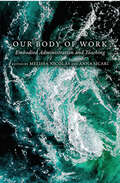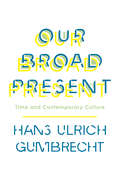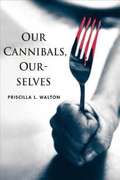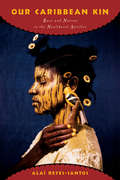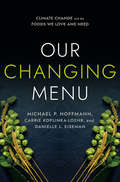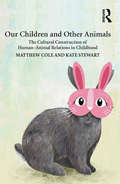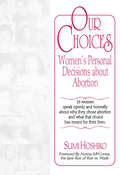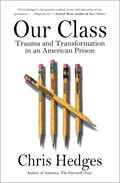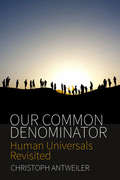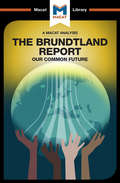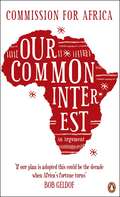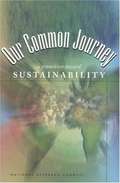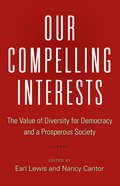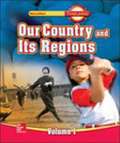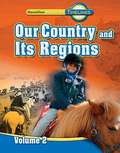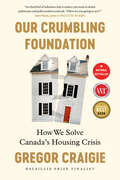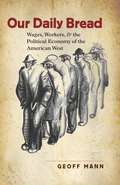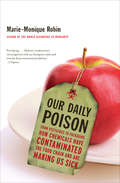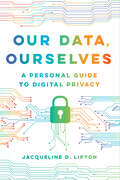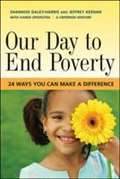- Table View
- List View
Our Body of Work: Embodied Administration and Teaching
by Melissa Nicolas Anna SicariOur Body of Work invites administrators and teachers to consider how physical bodies inform everyday work and labor as well as research and administrative practices in writing programs. Combining academic and personal essays from a wide array of voices, it opens a meaningful discussion about the physicality of bodily experiences in the academy. Open exchanges enable complex and nuanced conversations about intersectionality and how racism, sexism, classism, and ableism (among other “isms”) create systems of power. Contributors examine how these conversations are framed around work, practices, policies, and research and identify ways to create inclusive, embodied practices in writing programs and classrooms. The collection is organized to maximize representation in the areas of race, gender, identity, ability, and class by featuring scholarly chapters followed by narratively focused interchapters that respond to and engage with the scholarly work. The honest and emotionally powerful stories in Our Body of Work expose problematic and normalizing policies, practices, and procedures and offer diverse theories and methodologies that provide multiple paths for individuals to follow to make the academy more inclusive and welcoming for all bodies. It will be an important resource for researchers, as well a valuable addition to graduate and undergraduate syllabi on embodiment, writing instruction/pedagogy, and WPA work. Contributors: Dena Arendall, Janel Atlas, Hayat Bedaiwi, Elizabeth Boquet, Lauren Brentnell, Triauna Carey, Denise Comer, Joshua Daniel, Michael Faris, Rebecca Gerdes-McClain, Morgan Gross, Nabila Hijazi, Jacquelyn Hoermann-Elliott, Maureen Johnson, Jasmine Kar Tang, Elitza Kotzeva, Michelle LaFrance, Jasmine Lee, Lynn C. Lewis, Mary Lourdes Silva, Rita Malenczyk, Anna Rita Napoleone, Julie Prebel, Rebecca Rodriguez Carey, Ryan Skinnell, Trixie Smith, Stacey Waite, Kelsey Walker, Shannon Walters, Isaac Wang, Jennie Young
Our Broad Present: Time and Contemporary Culture (Insurrections: Critical Studies in Religion, Politics, and Culture)
by Hans Ulrich GumbrechtConsidering a range of present-day phenomena, from the immediacy effects of literature to the impact of hypercommunication, globalization, and sports, Hans Ulrich Gumbrecht notes an important shift in our relationship to history and the passage of time. Although we continue to use concepts inherited from a "historicist" viewpoint, a notion of time articulated in the eighteenth and nineteenth centuries, the actual construction of time in which we live in today, which shapes our perceptions, experiences, and actions, is no longer historicist. Without fully realizing it, we now inhabit a new, unnamed space in which the "closed future" and "ever-available past" (a past we have not managed to leave behind) converge to produce an "ever-broadening present of simultaneities." This profound change to a key dimension of our existence has complex consequences for the way in which we think about ourselves and our relation to the material world. At the same time, the ubiquity of digital media has eliminated our tactile sense of physical space, altering our perception of our world. Gumbrecht draws on his mastery of the philosophy of language to enrich his everyday observations, traveling to Disneyland, a small town in Louisiana, and the center of Vienna to produce striking sketches of our broad presence in the world.
Our Cannibals, Ourselves
by Priscilla L. WaltonWhy does Western culture remain fascinated with and saturated by cannibalism? Moving from the idea of the dangerous Other, Priscilla L. Walton's Our Cannibals, Ourselves shows us how modern-day cannibalism has been recaptured as in the vampire story, resurrected into the human blood stream, and mutated into the theory of germs through AIDS, Ebola, and the like. At the same time, it has expanded to encompass the workings of entire economic systems (such as in "consumer cannnibalism"). Our Cannibals, Ourselves is an interdisciplinary study of cannibalism in contemporary culture. It demonstrates how what we take for today's ordinary culture is imaginatively and historically rooted in very powerful processes of the encounter between our own and different, often "threatening," cultures from around the world. Walton shows that the taboo on cannibalism is heavily reinforced only partly out of fear of cannibals themselves; instead, cannibalism is evoked in order to use fear for other purposes, including the sale of fear entertainment. Ranging from literature to popular journalism, film, television, and discourses on disease, Our Cannibals, Ourselves provides an all-encompassing, insightful meditation on what happens to popular culture when it goes global.
Our Caribbean Kin: Race and Nation in the Neoliberal Antilles
by Alaí Reyes-SantosBeset by the forces of European colonialism, US imperialism, and neoliberalism, the people of the Antilles have had good reasons to band together politically and economically, yet not all Dominicans, Haitians, and Puerto Ricans have heeded the calls for collective action. So what has determined whether Antillean solidarity movements fail or succeed? In this comprehensive new study, Alaí Reyes-Santos argues that the crucial factor has been the extent to which Dominicans, Haitians, and Puerto Ricans imagine each other as kin. Our Caribbean Kin considers three key moments in the region's history: the nineteenth century, when the antillanismo movement sought to throw off the yoke of colonial occupation; the 1930s, at the height of the region's struggles with US imperialism; and the past thirty years, as neoliberal economic and social policies have encroached upon the islands. At each moment, the book demonstrates, specific tropes of brotherhood, marriage, and lineage have been mobilized to construct political kinship among Antilleans, while racist and xenophobic discourses have made it difficult for them to imagine themselves as part of one big family. Recognizing the wide array of contexts in which Antilleans learn to affirm or deny kinship, Reyes-Santos draws from a vast archive of media, including everything from canonical novels to political tracts, historical newspapers to online forums, sociological texts to local jokes. Along the way, she uncovers the conflicts, secrets, and internal hierarchies that characterize kin relations among Antilleans, but she also discovers how they have used notions of kinship to create cohesion across differences.
Our Changing Menu: Climate Change and the Foods We Love and Need
by Michael P. Hoffmann Carrie Koplinka-Loehr Danielle L. EisemanOur Changing Menu unpacks the increasingly complex relationships between food and climate change. Whether you're a chef, baker, distiller, restaurateur, or someone who simply enjoys a good pizza or drink, it's time to come to terms with how climate change is affecting our diverse and interwoven food system. Michael P. Hoffmann, Carrie Koplinka-Loehr, and Danielle L. Eiseman offer an eye-opening journey through a complete menu of before-dinner drinks and salads; main courses and sides; and coffee and dessert. Along the way they examine the escalating changes occurring to the flavors of spices and teas, the yields of wheat, the vitamins in rice, and the price of vanilla. Their story is rounded out with a primer on the global food system, the causes and impacts of climate change, and what we can all do. Our Changing Menu is a celebration of food and a call to action—encouraging readers to join with others from the common ground of food to help tackle the greatest challenge of our time.
Our Children and Other Animals: The Cultural Construction of Human-Animal Relations in Childhood
by Kate Stewart Matthew ColeFocusing on the socialization of the human use of other animals as resources in contemporary Western society, this book explores the cultural reproduction of human-nonhuman animal relations in childhood. With close attention to the dominant practices through which children encounter animals and mainstream representations of animals in children's culture - whether in terms of the selective exposure of children to animals as pets or as food in the home or in school, or the representation of animals in mass media and social media - Our Children and Other Animals reveals the interconnectedness of studies of childhood, culture and human-animal relations. In doing so it establishes the importance of human-animal relations in sociology, by describing the sociological importance of animals in children's lives and children in animals’ lives. Presenting a new typology of the various kinds of human-animal relationship, this conceptually innovative book constitutes a clear demonstration of the relevance of sociology to the interdisciplinary field of human-animal relations and will appeal to readers across the social sciences with interests in sociology, childhood studies, cultural and media studies and human-animal interaction.
Our Choices: Women's Personal Decisions About Abortion
by Sumi HoshikoRelationships, sex, pregnancy, and abortion are among the topics discussed with engaging frankness by sixteen women in this collection of oral histories. Our Choices: Women’s Personal Decisions About Abortion presents readers with the opportunity to understand the abortion choice in a way that statistics and abstract debate cannot. The accounts show how pregnancy and abortion are inextricably tied together in the complicated social and psychological lives of men and women. By exploring the women’s feelings about becoming pregnant unintentionally and the circumstances surrounding that occurrence, the stories reveal much about how men and women communicate with each other about sex, the effect of pregnancy and abortion on relationships, and how a woman’s upbringing has shaped her knowledge and attitudes regarding sex and abortion.Our Choices: Women’s Personal Decisions About Abortion includes stories of both legal and illegal abortions from the 1950s through the 1980s. The women included represent a variety of socioeconomic, cultural, and religious backgrounds, reminding readers that any woman can potentially be faced with the decisions surrounding unintended pregnancy and abortion. The issues raised cover the trauma of an illegal abortion, abortion versus adoption, abortion following rape, abortion as a medical procedure, and the role of family and partner support.Women who are considering abortion or who have had an abortion in the past will gain a deeper understanding of this complex and private experience; their partners, families, and friends will be better equipped to provide help and support. Professionals, including counselors and health care providers, will want to read this engrossing book and refer their clients to it. Students in women’s studies and health care programs, policymakers, ethicists, and others with an interest in women’s issues will find the book enlightening. It should be read by anyone wishing a more complete knowledge of abortion and the vast array of issues it encompasses.Our Choices: Women’s Personal Decisions About Abortion can be sold in family planning clinics to clients, used in pregnancy counseling training, and retained for reference by both public libraries and family planning clinics, reproductive rights organizations, universities, and women’s centers.
Our Class: Trauma and Transformation in an American Prison
by Chris HedgesA powerfully moving book that &“could make graspable why today&’s prisons are contemporary slave plantations&” (Alice Walker, author of The Color Purple), giving voice to the poorest among us and laying bare the cruelty of a penal system that too often defines their lives.Pulitzer Prize–winning journalist Chris Hedges has taught courses in drama, literature, philosophy, and history since 2013 in the college degree program offered by Rutgers University at East Jersey State Prison and other New Jersey prisons. In his first class at East Jersey State Prison, where students read and discussed plays by Amiri Baraka and August Wilson, among others, his class set out to write a play of their own. In writing the play, Caged, which would run for a month in 2018 to sold-out audiences at The Passage Theatre in Trenton, New Jersey, and later be published, students gave words to the grief and suffering they and their families have endured, as well as to their hopes and dreams. The class&’s artistic and personal discovery, as well as transformation, is chronicled in heartbreaking detail in Our Class. This &“magnificent&” (Cornel West, author of Race Matters) book gives a human face and a voice to those our society too often demonizes and abandons. It exposes the terrible crucible and injustice of America&’s penal system and the struggle by those trapped within its embrace to live lives of dignity, meaning, and purpose.
Our Common Denominator: Human Universals Revisited
by Christoph AntweilerSince the politicization of anthropology in the 1970s, most anthropologists have been reluctant to approach the topic of universals-that is, phenomena that occur regularly in all known human societies. In this volume, Christoph Antweiler reasserts the importance of these cross-cultural commonalities for anthropological research and for life and co-existence beyond the academy. The question presented here is how anthropology can help us approach humanity in its entirety, understanding the world less as a globe, with an emphasis on differences, but as a planet, from a vantage point open to commonalities.
Our Common Future
by Ksenia GerasimovaOur Common Future is a joint work produced in 1987 by a United Nations commission headed by former Norwegian Prime Minister, Gro Brundtland. Also known as The Brundtland Report, it offers a classic approach to problem solving by first asking a productive question. How do we protect the world we live in for future generations, while at the same time stimulating economic and social development right now? The solution the work proposes is “sustainable development”, defined in the report as humanity’s ability “to ensure that it meets the needs of the present without compromising the ability of future generations to meet their own needs.” The key conclusion the report came to – that we need long-term strategies to manage the earth’s natural resources – proved to be so universally welcomed it introduced the term “sustainability” into the everyday language of international politics. Solving the problem of workable sustainable development became a hot topic, leading to the birth of a new academic discipline, environmental economics. The book offered a solution to the problem of ensuring sustainable development by highlighting the critical importance of international cooperation.
Our Common Interest: An Argument
by Commission for Africa'The Commission for Africa finds the conditions of the lives of the majority of Africans to be intolerable and an affront to the dignity of all mankind. We insist upon an alteration of these conditions through a change of policy in favour of the weak.'The report of the Commission for Africa is the most important document of our time. Created by major decision-makers from across the globe, it is a call to action for the nations meeting at the 2005 G8 summit to end extreme poverty in the world's most desperate continent. This book sets out clearly the arguments and recommendations of the Commission's plan for a strong, prosperous Africa. 'The Africa Commission is a masterful display of diagnosis and politics' Jeffrey Sachs, Guardian'If we act on these recommendations, there is a good chance of a better life for hundreds of millions' Financial Times'This report will be an important contribution to the continuing search for effective solutions to the continent's problems' Kofi Annan
Our Common Journey: A Transition Toward Sustainability
by National Research CouncilWorld human population is expected to reach upwards of 9 billion by 2050 and then level off over the next half-century. How can the transition to a stabilizing population also be a transition to sustainability? How can science and technology help to ensure that human needs are met while the planet's environment is nurtured and restored?Our Common Journey examines these momentous questions to draw strategic connections between scientific research, technological development, and societies' efforts to achieve environmentally sustainable improvements in human well being. The book argues that societies should approach sustainable development not as a destination but as an ongoing, adaptive learning process. Speaking to the next two generations, it proposes a strategy for using scientific and technical knowledge to better inform future action in the areas of fertility reduction, urban systems, agricultural production, energy and materials use, ecosystem restoration and biodiversity conservation, and suggests an approach for building a new research agenda for sustainability science.Our Common Journey documents large-scale historical currents of social and environmental change and reviews methods for "what if" analysis of possible future development pathways and their implications for sustainability. The book also identifies the greatest threats to sustainability--in areas such as human settlements, agriculture, industry, and energy--and explores the most promising opportunities for circumventing or mitigating these threats. It goes on to discuss what indicators of change, from children's birth-weights to atmosphere chemistry, will be most useful in monitoring a transition to sustainability.
Our Communities
by Myra Zarnowski Merry M. Merryfield Peter Rees Phillip J. VanfossenNIMAC-sourced textbook
Our Communities 3rd Grade
by Richard G. Boehm James A. Banks Kevin P. Colleary Walter C. Parker Gloria Contreras Mary A. Mcfarland A. Lin GoodwinA social studies textbook.
Our Community Center (Places in Our Community)
by Lisa J. AmstutzThe community center is an important part of our community. Lots of people work together to make our community center a great place to be. Readers will learn about who works at the community center, what the workers do, and what makes a community center special. Simple, at-level text and vibrant photos help readers learn all about community centers.
Our Community and Beyond, Student Edition
by Bert Bower Teachers' Curriculum InstituteNIMAC-sourced textbook
Our Compelling Interests: The Value of Diversity for Democracy and a Prosperous Society
by Earl Lewis Nancy CantorIt is clear that in our society today, issues of diversity and social connectedness remain deeply unresolved and can lead to crisis and instability. The major demographic changes taking place in America make discussions about such issues all the more imperative. Our Compelling Interests engages this conversation and demonstrates that diversity is an essential strength that gives nations a competitive edge. This inaugural volume of The Andrew W. Mellon Foundation's Our Compelling Interests series illustrates that a diverse population offers our communities a prescription for thriving now and in the future. This landmark essay collection begins with a powerful introduction situating the demographic transitions reshaping American life, and the contributors present a broad-ranging look at the value of diversity to democracy and civil society. They explore the paradoxes of diversity and inequality in the fifty years following the civil rights legislation of the 1960s, and they review the ideals that have governed our thinking about social cohesion--such as assimilation, integration, and multiculturalism--before delving into the new ideal of social connectedness. The book also examines the demographics of the American labor force and its implications for college enrollment, graduation, the ability to secure a job, business outcomes, and the economy. Contributors include Danielle Allen, Nancy Cantor, Anthony Carnevale, William Frey, Earl Lewis, Nicole Smith, Thomas Sugrue, and Marta Tienda. Commentary is provided by Kwame Anthony Appiah, Patricia Gurin, Ira Katznelson, and Marta Tienda.At a time when American society is swiftly being transformed, Our Compelling Interests sheds light on how our differences will only become more critical to our collective success.
Our Country and Its Regions, Volume 1 [Grade 4]
by Dinah Zike James A. Banks Kevin P. Colleary Linda Greenow Walter C. Parker Emily M. SchellMacmillian/McGraw-Hill TIMELINKS Grade 4 (or grade 5 or 6) builds geographic mastery with maps and skills, offers reading skills and strategies to reinforce Reading/Language Arts skills, and integrates Dinah Zike's Foldables® to help students improve comprehension. * Two volumes per grade * Available as single copies or in grade level sets
Our Country and Its Regions, Volume 2 [Grade 4]
by Dinah Zike James A. Banks Kevin P. Colleary Linda Greenow Walter C. Parker Emily M. SchellMacmillian/McGraw-Hill TIMELINKS Grade 4 (or grade 5 or 6) builds geographic mastery with maps and skills, offers reading skills and strategies to reinforce Reading/Language Arts skills, and integrates Dinah Zike's Foldables® to help students improve comprehension. * Two volumes per grade * Available as single copies or in grade level sets
Our Country's Regions 4th Grade
by Richard G. Boehm James A. Banks Kevin P. Colleary Walter C. Parker Gloria Contreras Mary A. Mcfarland A. Lin GoodwinOur Country's Regions examines the geography, history, and economies of different regions in our country
Our Crumbling Foundation: How We Solve Canada's Housing Crisis
by Gregor CraigieAn urgent and illuminating examination of the unrelenting housing crisis Canadians find ourselves facing, by Balsillie Prize finalist and CBC Radio host Gregor Craigie, Our Crumbling Foundation offers real-life solutions from around the world and hope for new housing innovation in the face of seemingly impossible obstacles.Canada is experiencing a housing shortage. Although house prices in major Canadian cities appear to have topped out in early 2023, new housing isn&’t coming onto the market quickly enough. Rising interest rates have only tightened the pressure on buyers, and renters, too, as rising mortgage rates cost landlords more, which are passed along to tenants in rent increases. Even with the recent federal budget commitment to bring more housing online by 2030, there will still be a shortfall of 3.5 million homes by 2030.Gregor Craigie is a CBC journalist in Victoria, one of the highest-priced housing markets in the country. On his daily radio show On The Island he's been talking for over 15 years to local experts and to those across the country about housing. Craigie has travelled to many of the places he profiles in the book, and in his interviews with Canadians he presents the human face of the shortfall as he speaks with renters, owners and homeless people, exploring their varying predicaments and perspectives. He then shows, through comparable profiles of people across the globe, how other North American and international jurisdictions (Tokyo, Paris, Berlin, Helsinki, Singapore, Ireland, to name a few) are housing their citizens better, faster and with determination—solutions that could be put into practice here.With passion, knowledge and vigour, Craigie explains how Canada reached this critical impasse and will convince those who may not yet recognize how badly our entire country is in need of change. Our Crumbling Foundation provides hope for finding our way out of the crisis by recommending a number of approaches at all levels of government. The prescription for how we&’re going to house ourselves and do so equitably, requires not just a business solution, nor simply a social solution.
Our Daily Bread
by Geoff MannA wage is more than a simple fee in exchange for labor, argues Geoff Mann. Beyond being a quantitative reflection of productivity or bargaining power, a wage is a political arena in which working people's identity, culture, and politics are negotiated and developed. In Our Daily Bread, Mann examines struggles over wages to reveal ways in which the wage becomes a critical component in the making of social hierarchies of race, gender, and citizenship.Combining a fresh analysis of radical political economy with a critical assessment of the role of white men in North American labor politics, Mann addresses the issue of class politics and places the problem of "interests" squarely at the center of political economy. Rejecting the idea that interests are self-evident or unproblematic, Mann argues that workers' interests, and thus wage politics, are the product of the ongoing effort by wage workers to focus on quality in a socioeconomic system that relentlessly quantifies. Taking three wage disputes in the natural resources industry as his case studies, Mann demonstrates that wage negotiation is not simply emblematic of economic conflict over the distribution of income but also represents critical contests in the cultural politics of identity under capitalism.
Our Daily Poison: From Pesticides to Packaging, How Chemicals Have Contaminated the Food Chain and Are Making Us Sick
by Marie-Monique Robin&“An enlightening and deeply disturbing account&” of the dangerous chemicals that have infiltrated our food, by the Rachel Carson Prize–winning journalist (Booklist). Our Daily Poison is &“a gripping and urgent book&” for anyone concerned about democracy, corporate power, or public health (Raj Patel, author of Stuffed and Starved). In it, award-winning journalist and filmmaker Marie-Monique Robin travels across North America, Europe, and Asia to document the shocking array of chemicals we encounter in our daily lives—from the pesticides that blanket our crops to the additives and plastics that contaminate our food—and their effects on our health over time. Following the trail of the synthetic molecules in our environment and our food, Robin traces the ugly history of industrial chemical production, as well as the shoddy regulatory system for chemical products that still operates today. Using scientific studies, expert testimony, and interviews with farmworkers suffering from acute chronic poisoning, Robin demonstrates how corporate interests—and our own ignorance—may be costing us our lives. &“What Rachel Carson&’s groundbreaking Silent Spring did for the environmental movement, Robin is doing for awareness of toxins in the food chain.&” —Publishers Weekly &“This may be one of the most important books of the year.&” —Kirkus Reviews &“Full of facts, stories, and wisdom.&” —The Huffington Post
Our Data, Ourselves: A Personal Guide to Digital Privacy
by Jacqueline D. LiptonA practical, user-friendly handbook for understanding and protecting our personal data and digital privacy. Our Data, Ourselves addresses a common and crucial question: What can we as private individuals do to protect our personal information in a digital world? In this practical handbook, legal expert Jacqueline D. Lipton guides readers through important issues involving technology, data collection, and digital privacy as they apply to our daily lives.Our Data, Ourselves covers a broad range of everyday privacy concerns with easily digestible, accessible overviews and real-world examples. Lipton explores the ways we can protect our personal data and monitor its use by corporations, the government, and others. She also explains our rights regarding sensitive personal data like health insurance records and credit scores, as well as what information retailers can legally gather, and how. Who actually owns our personal information? Can an employer legally access personal emails? What privacy rights do we have on social media? Answering these questions and more, Our Data, Ourselves provides a strategic approach to assuming control over, and ultimately protecting, our personal information.
Our Day to End Poverty: 24 Ways You Can Make a Difference
by Shannon Daley-Harris Jeffrey Keenan Karen SpeerstraImagine ending poverty at home and around the globe in our own lifetimes. Imagine your actions combining with others' actions to make poverty history.
